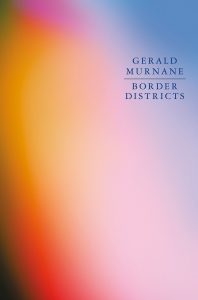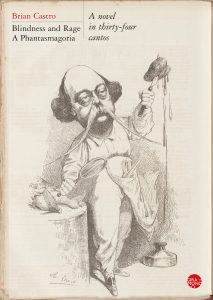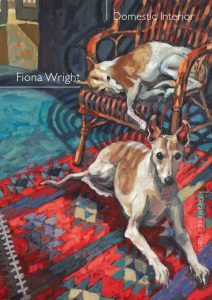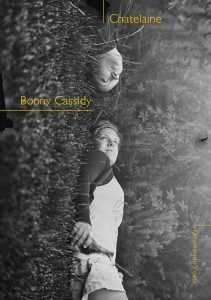Gerald Murnane, Brian Castro, Fiona Wright and Bonny Cassidy are shortlisted for the 2018 Prime Minister’s Literary Awards
We are pleased to announce that four titles published by Giramondo have been shortlisted for this year’s Prime Minister’s Literary Awards: Gerald Murnane’s Border Districts in the Fiction category, and Bonny’s Cassidy’s Chatelaine, Brian Castro’s Blindness and Rage: a Phantasmagoria and Fiona Wright’s Domestic Interior in the Poetry category. See the judges’ comments below for each of the shortlisted titles.
To view the full shortlist, please visit the Prime Minister’s Literary Awards website.
In Border Districts, Gerald Murnane has distilled the various elements of his inimitable literary sensibility into a perfectly formed short work. The logic of this unique book is associative rather than narrative. Styled as a ‘report’ on the images that strike the mind of its narrator, it has him relating scenes from his childhood and adolescence, reflecting on the books he has read, remembering old acquaintances, and taking in the landscape of the small borderland town where he has come to live. The narrative is an exquisite prism of introspection, in which a life’s experiences are carefully ordered and transformed into art by virtue of the patterns they come to form in the mind and the profoundly evocative qualities they have acquired. Rendered in crystalline prose and touched with an elegiac pathos, Border Districts is the crowning achievement of a singular literary career.
Blindness and Rage is a verse novel – composed of thirty-four cantos – notable for its mordant wit, its rich allusiveness and the invigorating fluency of its verse. Characterised by its author as a ‘phantasmagoria’, it describes the adventures of a terminally ill poet from Adelaide named Lucien Gracq, as he undertakes a final journey through the seamy underbelly of the literary world in the hope of realising his desire to complete his own epic poem. Blindness and Rage displays the formal inventiveness that has long been a feature of Brian Castro’s work, but it is also an extremely funny book, packed with jokes and wordplay that wrings considerable delight from Gracq’s gloomy outlook. Blindness and Rage is a wicked satire on pretension and futility, a poem about ambition and literary endeavour as paths to frustration and failure, but it is itself a poem that manages to avoid these pitfalls and achieve a brilliant success.
Domestic Interior by Fiona Wright invites us to observe Australian life through the lens of the suburban domestic. Wright’s aim is not to replicate notions of domestic space as one that inhibits its female occupants, but rather one that, if properly calibrated to the moment, is copious in its catalogue of energies. Wright’s meditation on domestic interiors extends to the interiority of the self as she turns her gaze outdoors. ‘Sometimes a reorientation’, she says, ‘presents another face to the sea’. In ‘Winter Pastoral’ she juxtaposes the concrete imagery of road kill – ‘dead wombats bouldered / and wild-eyed wallabies / vaulted the boundary fence’ – against the unexpected marvel of the sky: ‘I’d forgotten how stars giddy / out here,’ she says. Finding herself in Berlin, the poet is disoriented but enthralled inside a foreign language: a woman on a train hands her ‘the word Pfingsrosen, / a peony plucked from her own front yard’. The poet later recalls ‘a white lace dress. We’re drinking gin,’ she says, ‘muddled with cherries’. Intoxicating in its imagery, Domestic Interior affirms language, even its smallest components, as the prime constituents of our inner world.
Chatelaine by Bonny Cassidy puts the word centre stage. Cassidy’s poetry is rooted in her investigations of language, an interest in a feminist consciousness, and her capacity for renewing meaning as a virtual space of desire. The reader enters a poetic world of ‘noisy secrets’ in which ‘riddles multiply’ to generate a reading experience in which it is more rewarding to ask than to answer: ‘Question nearly everything, read it again,’ the poems command. ‘Why do you do this?’ and ‘who else owns your body?’ From pilgrims to daleks, a shimmering heath to a basement carpark, Cassidy tunnels in opposite directions – accelerating through time, dreams, myth and person – to stake a territory beyond the language of the familiar. The poems in Chatelaine coalesce in a dream in which Cassidy renovates the ancestral household into an audacious new architecture of meaning.




